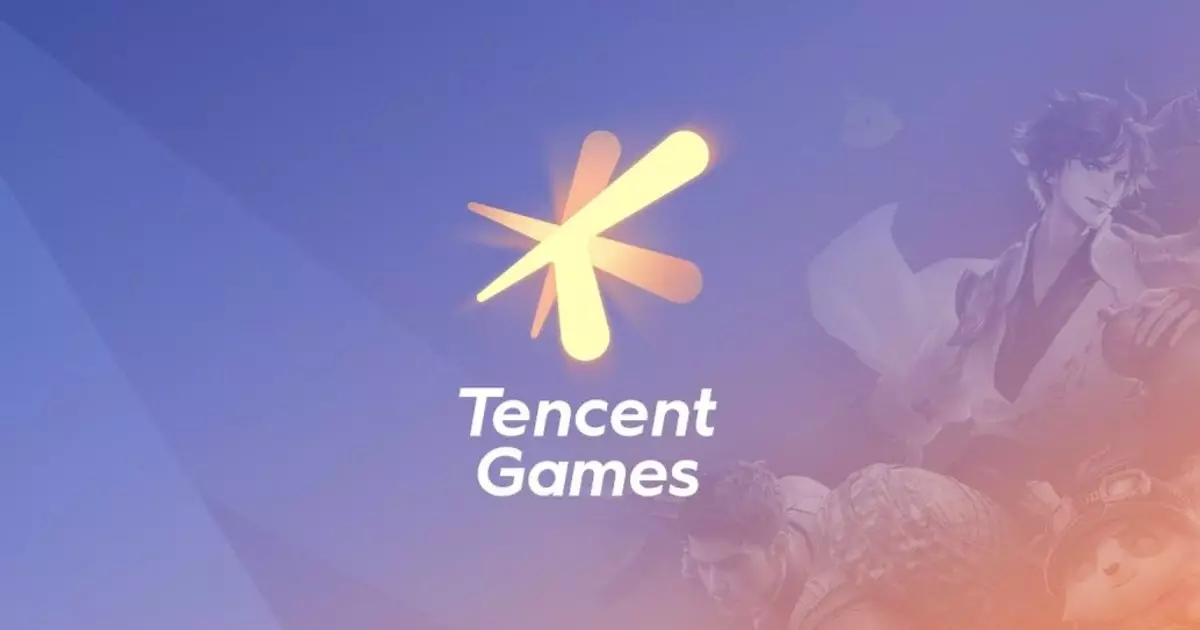Recent events have emphasized the building strain between the United States and China, particularly in the realm of technology and trade. The U.S. federal government has recently categorized Tencent, a prominent Chinese video game publisher known for owning Riot Games and Grinding Gear Games, among alleged Chinese military companies. This designation is part of a broader U.S. strategy that aims to counter what it perceives as a deepening nexus between China’s military operations and its civilian tech enterprises. The implications of such designations are far-reaching, as they not only impact a company’s market reputation but can also impede international business operations.
In response to its new classification, Tencent has swiftly defended itself, emphasizing that this listing stems from a “misunderstanding.” A spokesperson initially highlighted that Tencent has no affiliations with military activities or the defense sector. However, more recently, Tencent’s chairman, Ma Huateng, along with the company’s executive board, have escalated their response, signaling a readiness to pursue legal action should this misunderstanding remain unaddressed. Their formulaic statement reiterated their stance, categorically dismissing claims of military connections.
The company’s assertion is built on the argument that it operates independently of any military-civil fusion initiatives. This is in direct reference to the U.S. Department of Defense’s assertions regarding China’s military leveraging civilian tech companies for dual-use technologies. Tencent’s reiteration that it is not involved in these fusion models aims to disassociate itself from any implications of aiding military operations.
Tencent is preparing to embark on a reconsideration process to challenge its designation. This involves negotiations with the U.S. Department of Defense with the goal of rectifying what it deems an erroneous classification. If necessary, Tencent is poised to escalate the matter to legal proceedings to ensure its removal from the contentious list. The stakes are high; being listed as a military enterprise can significantly hinder a company’s ability to engage in business dealings, especially ones related to the U.S. government and its contractors.
Historically, this isn’t Tencent’s predicament alone. Various Chinese companies have found themselves embroiled in legal disputes over similar designations. Companies like DJI and Hesai Technologies have contested their inclusion on U.S. military lists in recent years, highlighting a trend of escalating tensions surrounding technology and national security concerns.
The Broader Context of International Business Relations
The case of Tencent illustrates the growing challenges that international businesses face amid geopolitical conflicts. Companies founded in non-military sectors can rapidly find their operations scrutinized under the lens of national security. For Tencent, the classification reflects a broader narrative, wherein tech firms from China are often viewed with suspicion in the West. The implications are not just operational but can lead to systemic impacts affecting market dynamics and investment flows across borders.
Moreover, the assertion that being part of the Chinese Military Company List does not restrict business operations with the general public or other sectors buries a significant concern for Tencent. While the classification may not directly affect their core gaming business, the shadow it casts on their reputation is undeniable. In the competitive world of tech and gaming, reputation often parallels success.
As Tencent navigates this potential legal battle, the outcome of this situation could set a precedent for other companies caught in similar governmental crossfires. The repercussions of this dispute extend beyond Tencent; they delve into the intricate web of U.S.-China relations, raising questions about fairness in international trade practices, the definition of national security, and the future of technological collaboration.
Ultimately, Tencent’s plight underscores the critical need for transparent dialogue and mutual understanding between nations. As technology continues to bridge global gaps, fostering cooperation rather than contention may be the pathway to navigating the complex landscape of international business. The resolution of this misunderstanding, if achieved, may offer a glimpse of hope for improved relations in an increasingly polarized world.


Leave a Reply